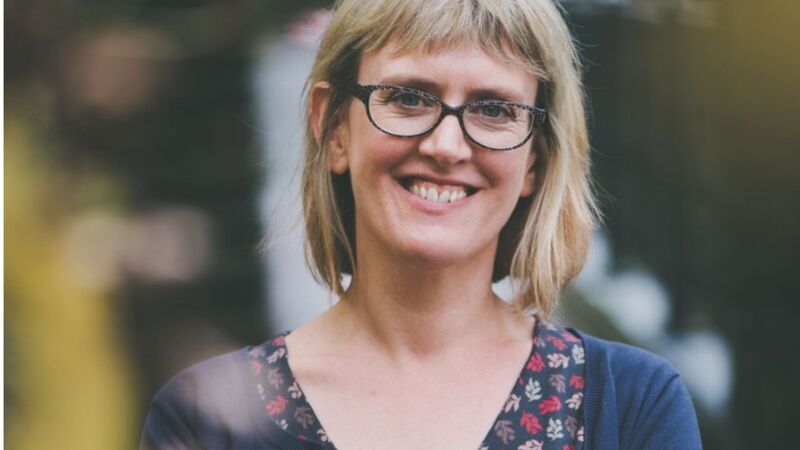You are viewing your 1 free article this month. Login to read more articles.
Indies warned on rising costs and supply chain problems into New Year
Delays in the supply chain could continue into 2022 with book prices inflating to levels “not seen for many years”, the IPG's hybrid Autumn Conference has heard.
Ingram Content Group UK senior vice-presdient David Taylor predicted book prices might have to increase, something a number of publishers have been debating recently, with inflation similar to that seen in the 1970s.
Factors such as shipping costs and meeting environmental targets would all play a part, Taylor warned. “I do think we’re in for book price inflation that we’ve not see for many years,” he said.
Mentioning a recent example where a group of 65 container ships were waiting off the west coast of the US, he explained: “One of the theories is that as we came out of lockdown it released a lot of pent-up consumer demand and as the economy started to recover there was a huge growth in online spending, as a result of which there was a huge group of container ships out on the ocean.
“I think it is to do with a surge in demand for imports and that in turn is driving the cost of container ships. The spectre of inflation is looming over our industry and there are several reasons for that...prices are rising and printers are going to charge publishers more and publishers are going to suck it up or it will feed through into book price inflation. I would say, a little controversially, that I think books are still incredible value. I think we’ll see an increase in book prices because publishers really won’t have any choice.”
On environmental targets, he added: “There are a lot of announcements from lots of publishers on this and none of that is not going to come cheap. The idea that you can continue printing books cheaply in China and shipping them around the world is not going to sit too easily with those initiatives. The shift to local manufacturing – that will be absolutely be the case.
“What does this mean for globalisation and the supply chain we’ve all grown up with which is reliant on just-in-time manufacturing? So prices will go up.”
In a separate session at the 3rd November event hosted by Quarto UK c.e.o. David Graham, Taylor was joined by Gardners buying director Simon Morley to discuss issues in the run up to Christmas.
Both Morley and Taylor agreed costs were still going to increase, and a combination of the pandemic, Brexit and the decline of former wholesaler Bertrams had massively affected the global supply chain
Taylor said: “The last 24 months have been quite extraordinary. In the last six months in particular we are seeing huge costs in everything from labour, energy, print, shortage of [computer] chips... Christmas is coming earlier, because people are panicking and they want their items."
Morley said warehouses across the UK are currently having difficulty picking orders because of staff shortages, a problem also showing up in a lack of lorry drivers. He said Gardners was "fortunate to be working with the larger players, such as Royal Mail, so 90% to 95% of our orders are turning up on time in the UK, but things are slower".
Addressing the lead up to Christmas, Morley said Gardners was preparing for both November and December to be "really busy". "We want to fill up shops ready for Christmas," he said. "We've purchased early from publishers.”
Taylor said "huge issues" with a worldwide shortage of paper were having a detrimental effect globally. "There is a huge demand on pulp and part of this is a huge surge in demand for books in Europe and North America. All the things the [public can buy online] are in cardboard boxes too — if you're making cardboard boxes, you're laughing. If that wasn't bad enough, Brexit means it is more expensive to get books into the UK."
Commenting on the effect of Brexit for Gardners' overseas operations, Morley said: "It's really changed, a global effect, not just within the UK. The paperwork has been the biggest [issue] from when it leaves the distribution centre to where it runs up and goes through customs.
"Export has declined because the UK is not easy to trade with — the flow is much better than it was, but it's still got a long way to go."
Disccussing the Brexit landscape for Ingram, Taylor said: "It's been a complete pain in the arse. For UK to Europe distribution it's certainly more expensive and I don't think that's going to change. Perhaps one of the solutions will be to manufacture in the EU and to massively look at print on demand capabilities in the UK. A lot of publishers are going to look to carry inventory within the EU, rather than the UK. It is driving some structural changes in the way some books are going to be shipped in the UK.”
Delegates were urged to communicate consistently with distributors and wholesalers, particularly in the 51 trading days until Christmas, and to keep lines open into the New Year. Taylor warned: "People worry about what is going to happen after Christmas. A certain internet retailer is buying huge swathes of stock — we may have a bit of a headache coming down the track.”
"Things will cost more, and things will be slower, but I hope 2022 will be a better version of 2021," Morley added.















